Antarctica is melting faster than originally thought, new study finds
The study spanned the entire continent and found widespread melting.
— -- While it's no secret that the ice on Earth's poles is melting, scientists are still learning about how rapidly these changes are happening.
Now a new study of water across the surface of Antarctica finds that the melting is occurring to a greater degree than previously thought.
“This study tells us there’s already a lot more melting going on than we thought,” co-author Robin Bell told Columbia University's Earth Institute last week in a press release about the study. “When you turn up the temperature, it’s only going to increase.”
Researchers from Columbia’s Lamont-Doherty Earth Observatory conducted the study and published their findings in the journal Nature on Wednesday,
Stunning aerial photos reveal evolving Antarctic landscape
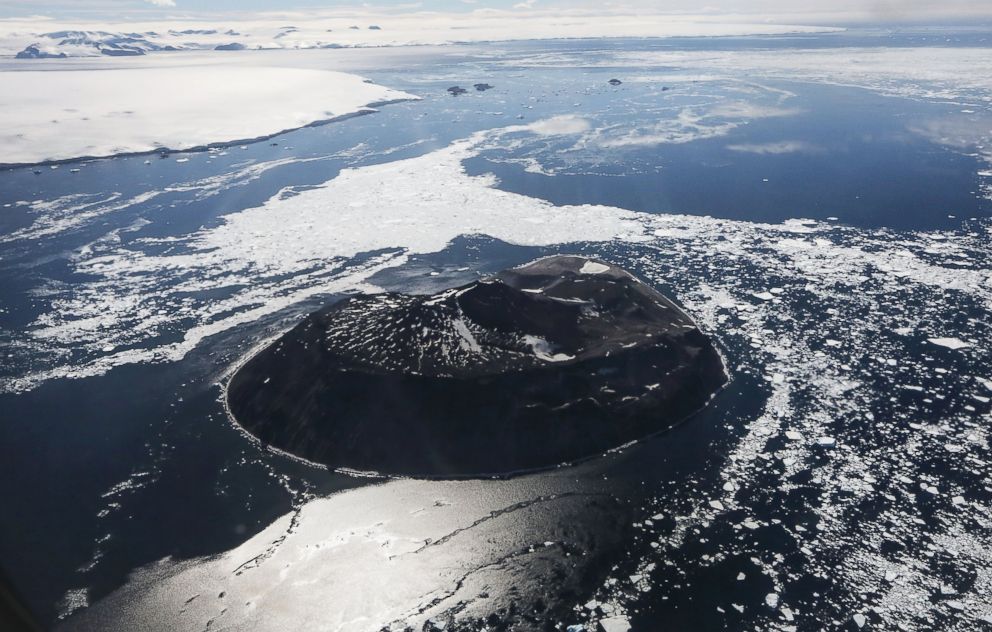
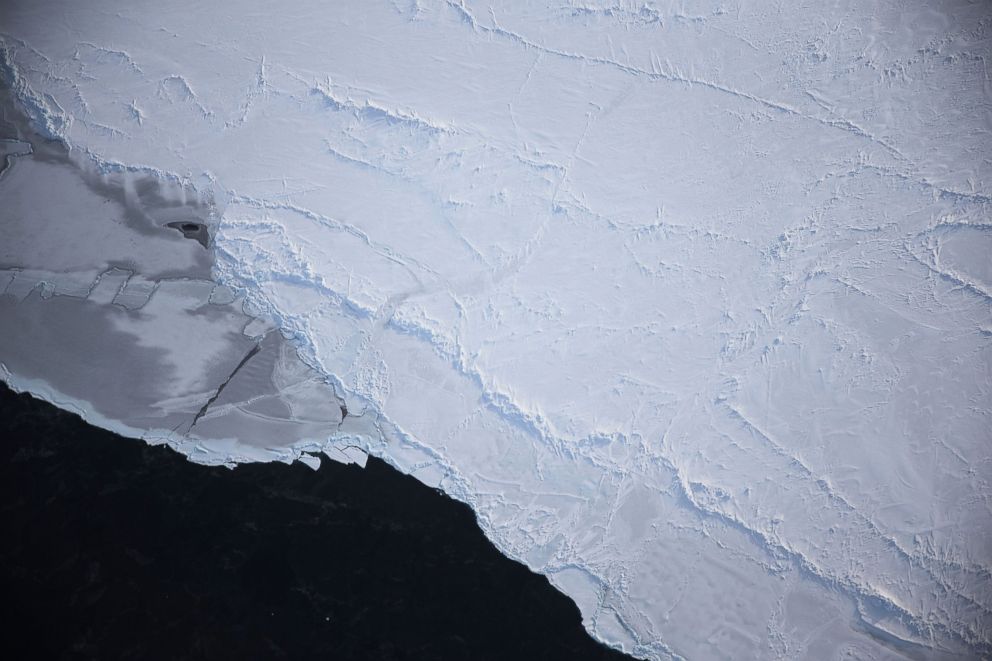
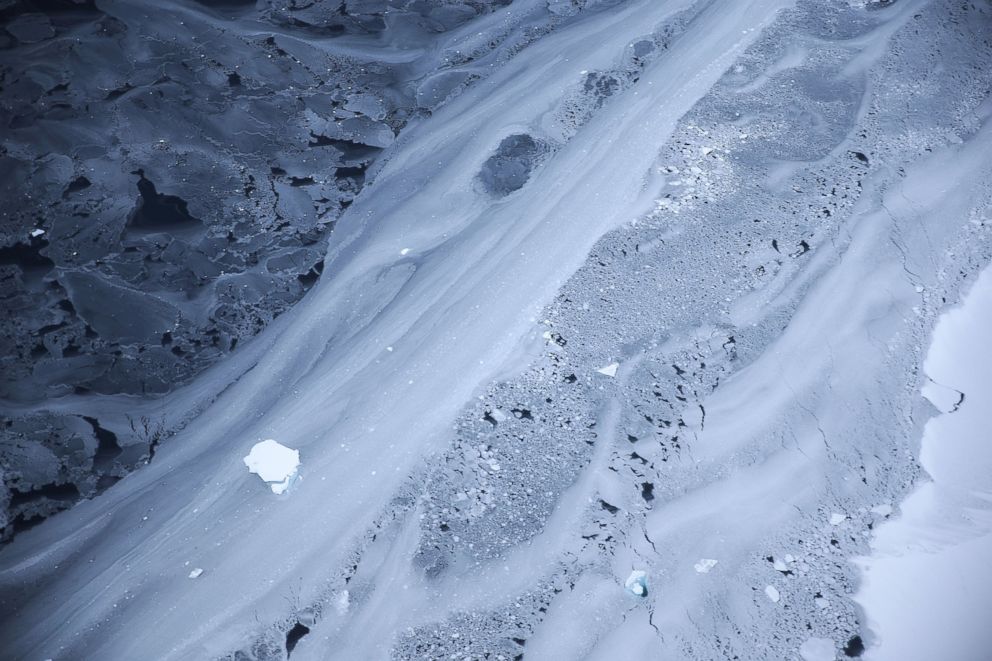
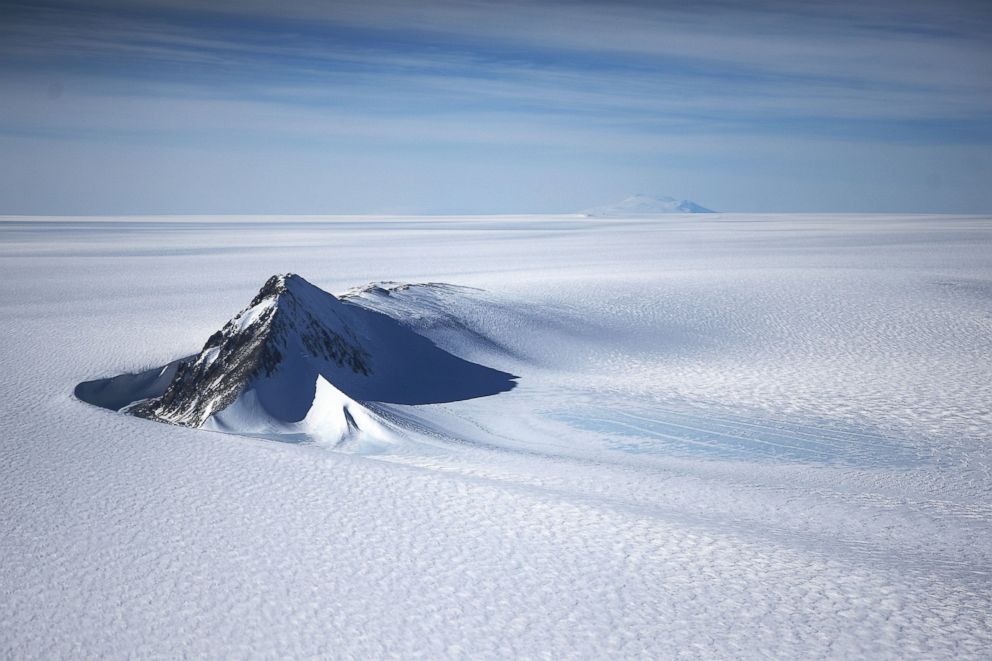
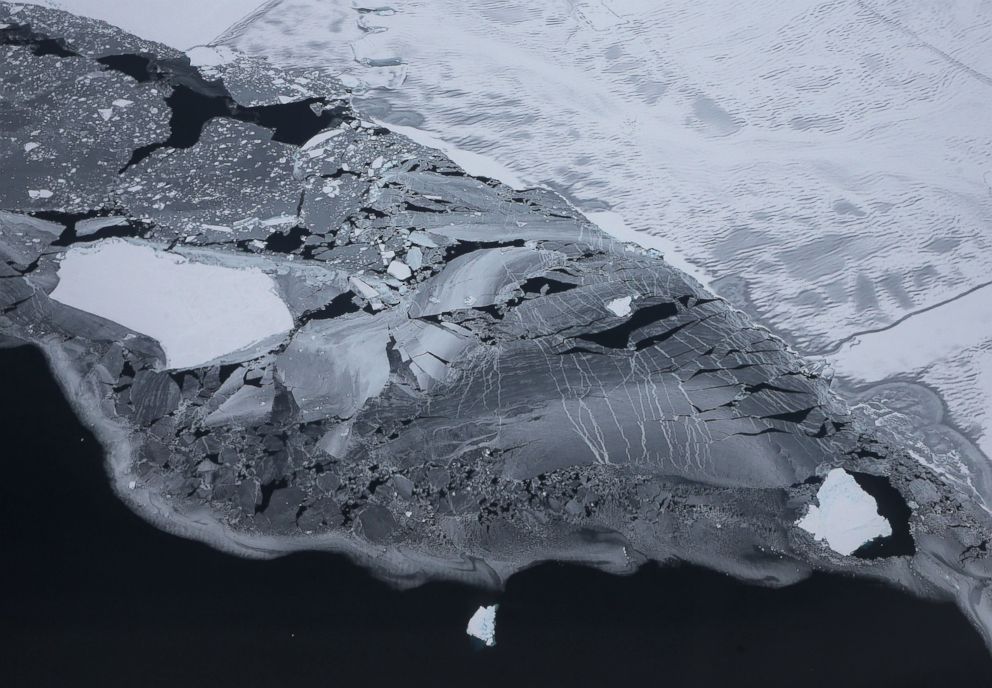
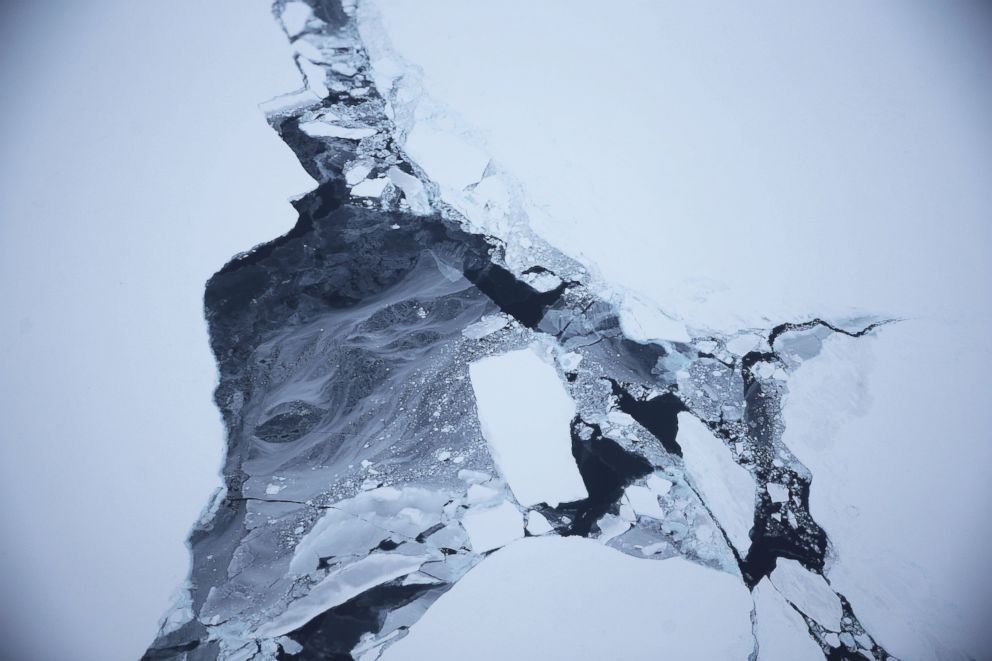
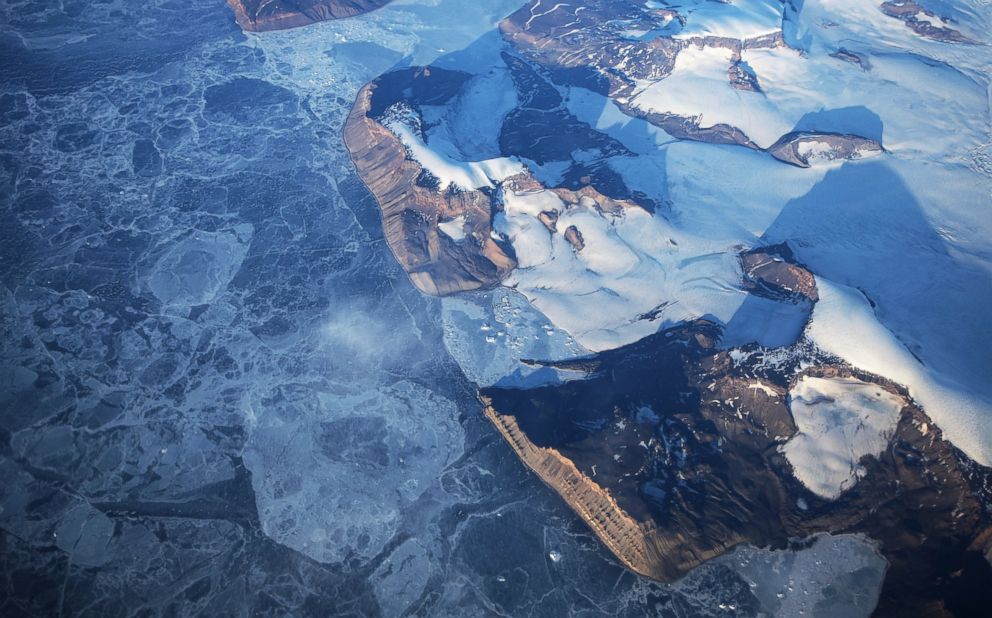
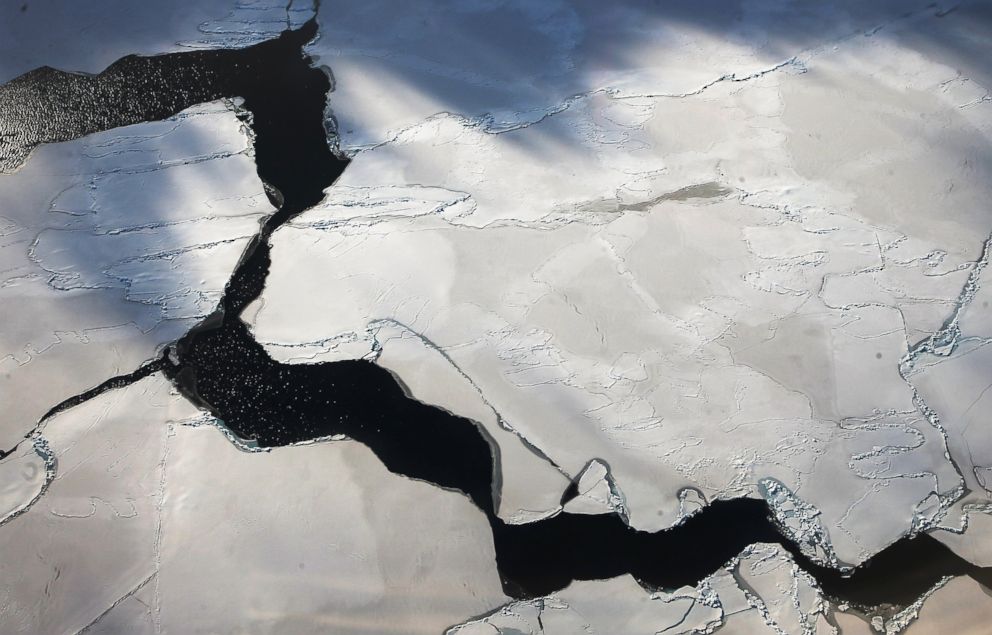
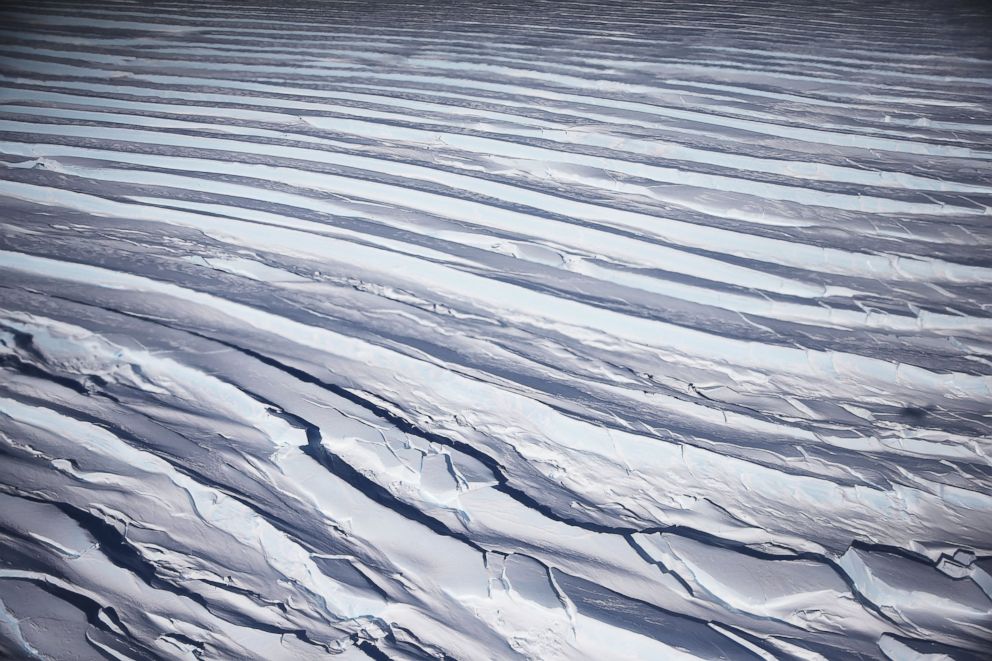
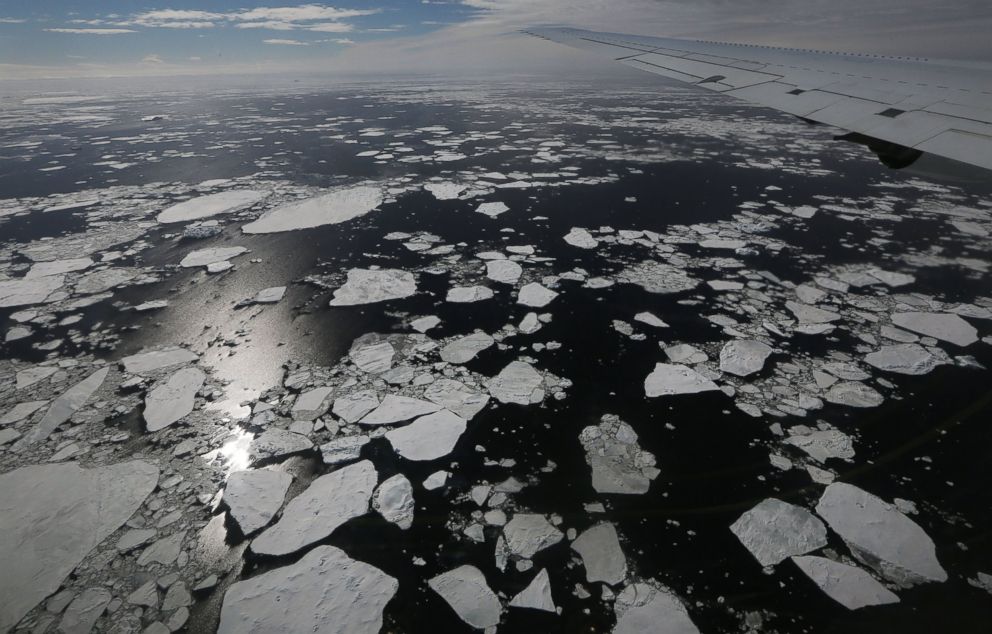

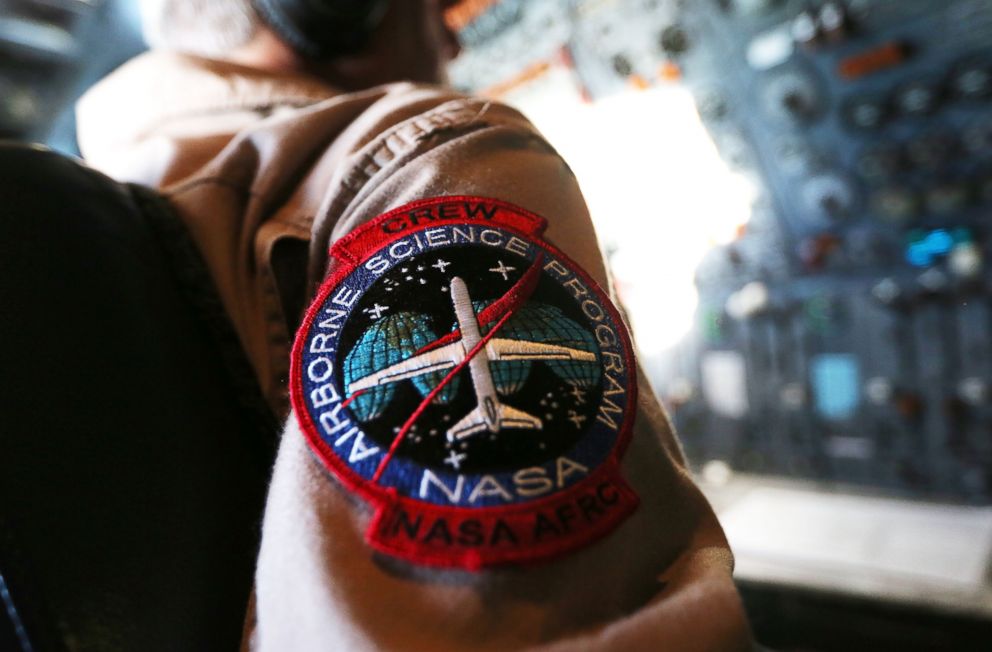
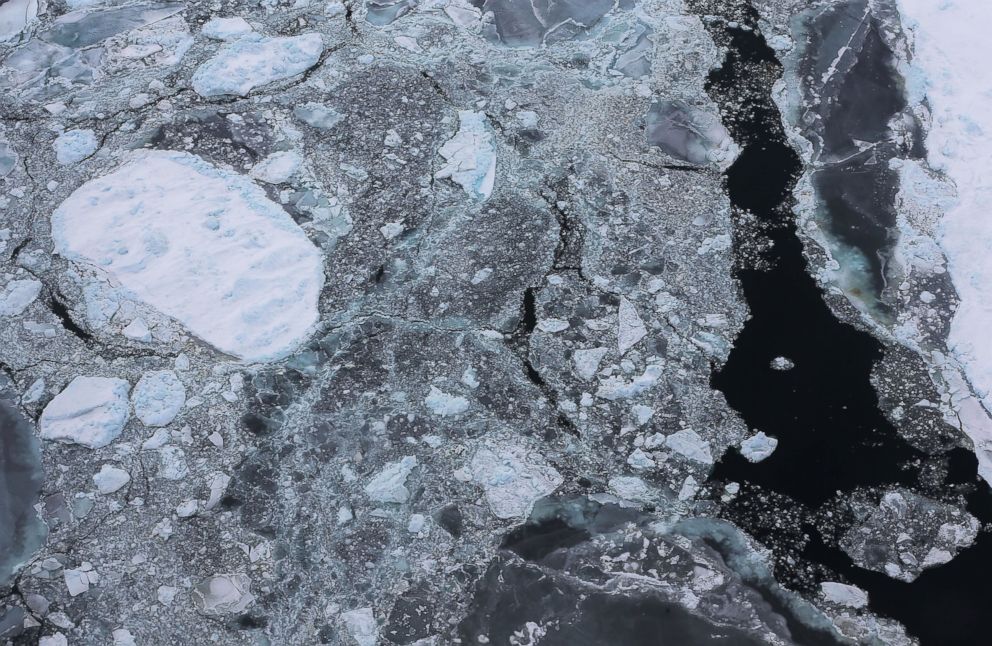
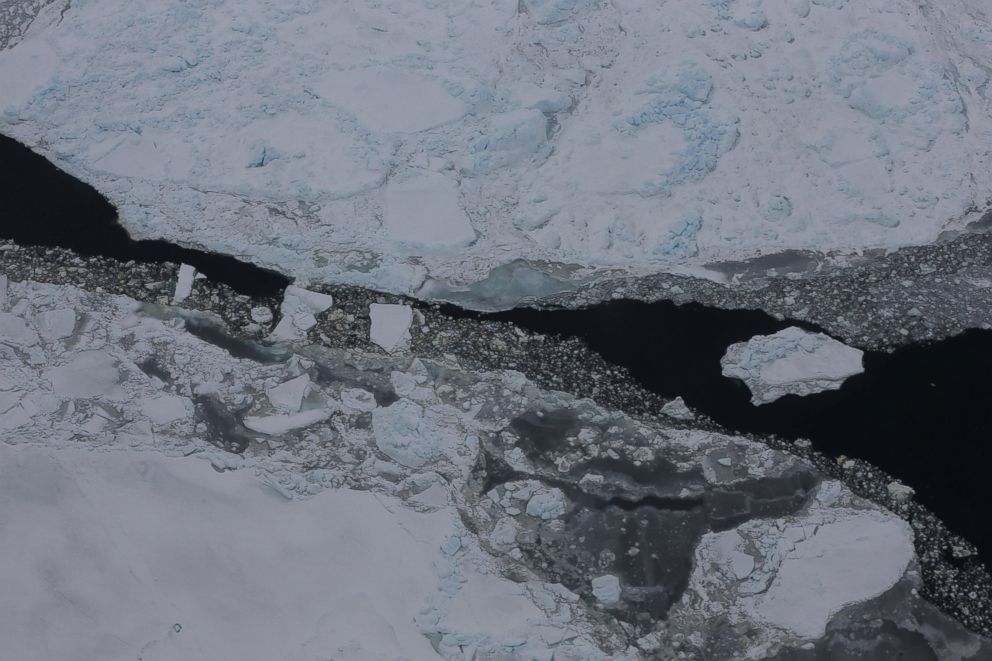
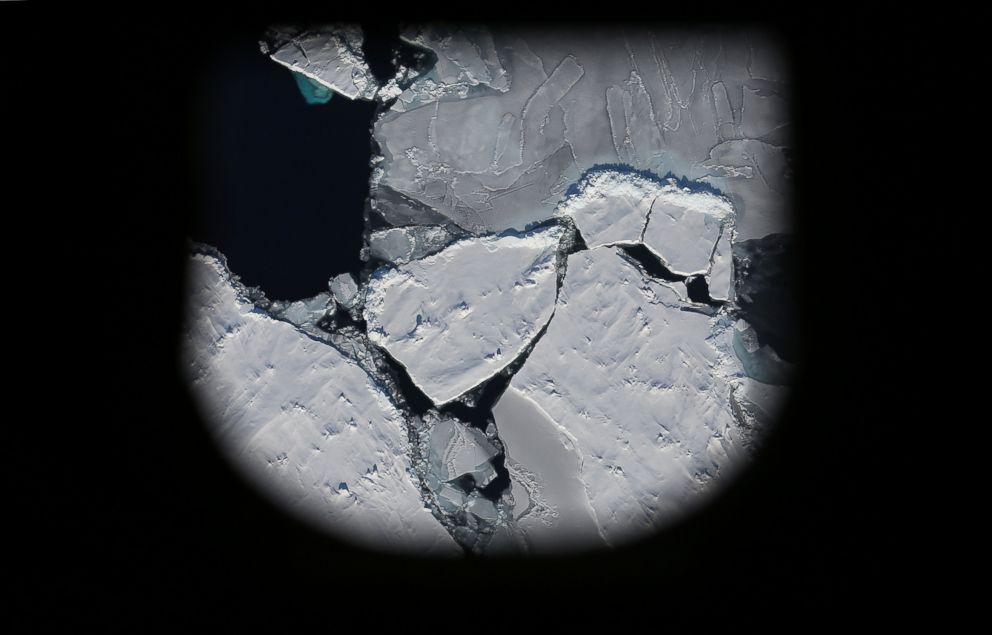
The scientists "found extensive drainages of meltwater" flowing in parts of Antarctica where they did not expect to find it, according to the Earth Institute's press release.
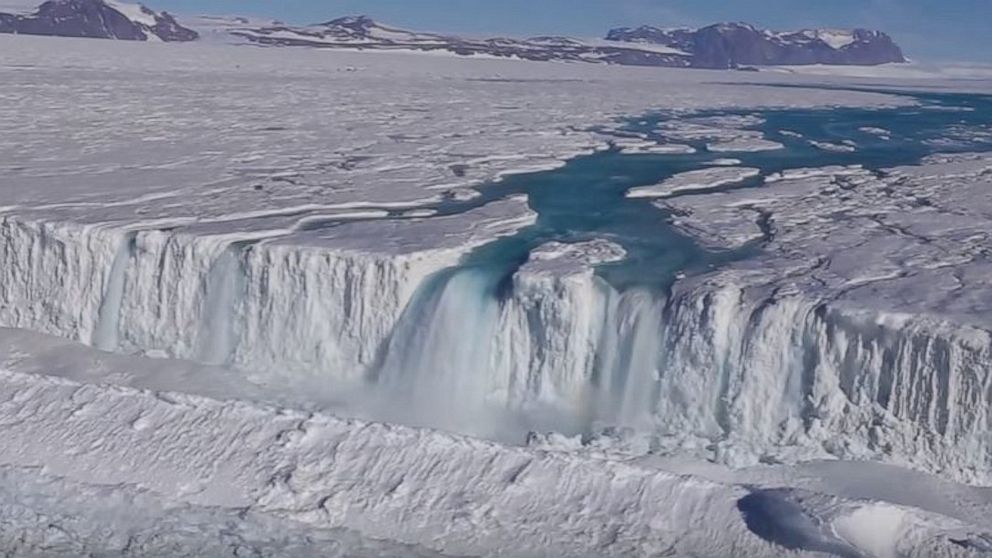
Video provided by the Earth Institute, shows a 400-foot-wide waterfall draining a steady flow of turquoise water off the Nansen ice shelf and into the ocean.
The Nansen ice shelf, which is on the southern side of the continent, is a mammoth glacier that stretches about 30 miles long and 10 miles wide, according to Geographic Names and Information Systems.
“This is not in the future — this is widespread now and has been for decades,” glaciologist Jonathan Kingslake told the Earth Institute. “I think most polar scientists have considered water moving across the surface of Antarctica to be extremely rare. But we found a lot of it, over very large areas.”
In January, scientists warned that a chunk of ice about the size of Delaware could soon break off the Larsen C ice shelf in northern Antarctica.
When the Delaware-sized chunk of ice breaks away, the Larsen C ice shelf could lose more than 10 percent of its area, according to Project MIDAS, a U.K.-based Antarctic research project.
The "event will fundamentally change the landscape of the Antarctic Peninsula," Project MIDAS said.






